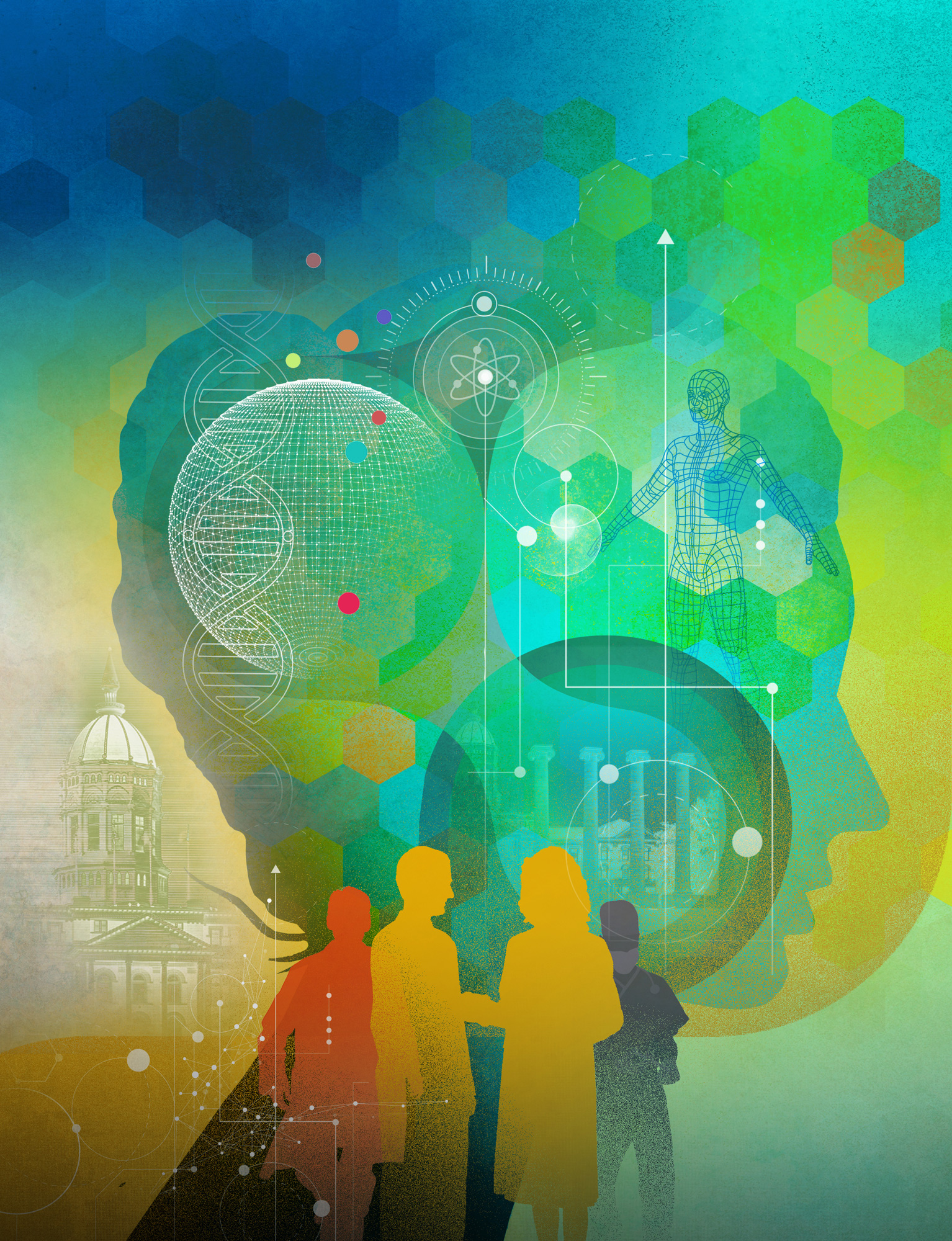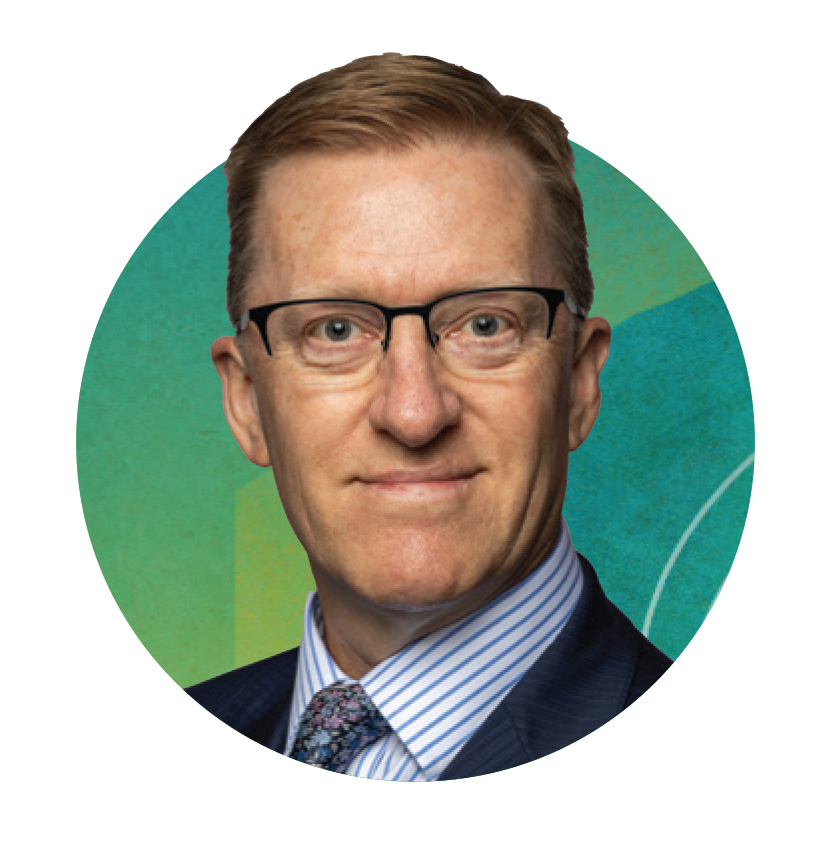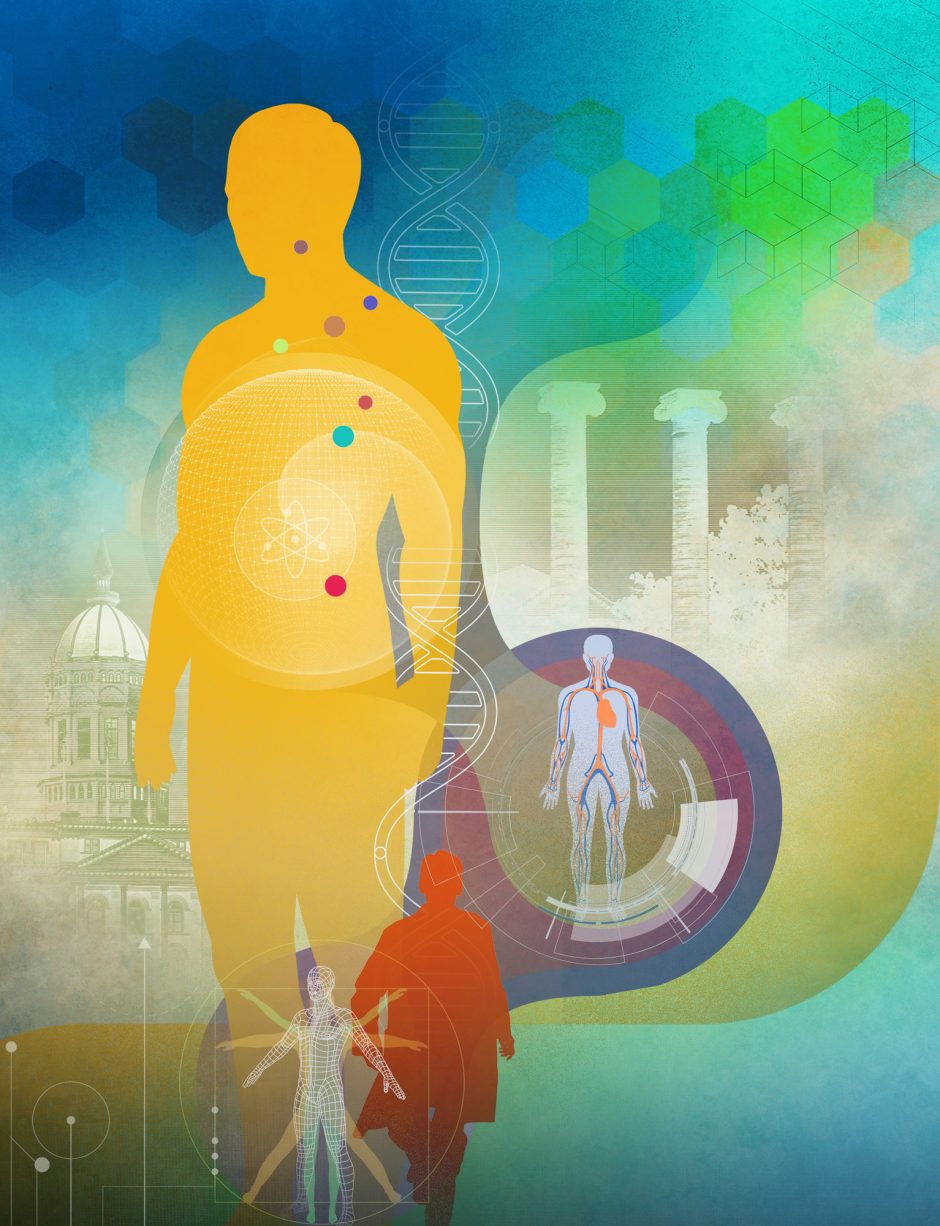
Published on Show Me Mizzou April 24, 2025
By Dean Kristofer Hagglund, as told to Tony Rehagen, BA, BJ ’01

When people think about the future of health sciences, they generally think small. Technology today, in general, is all about smaller, faster, better. Medical technology is no different. We have laser-focused innovations such as precision medicine to personalize care based on genetic markers, bioinformatics that help us predict and diagnose disease based on molecular factors, and nanotechnology that enables us to assess and treat patients at the cellular level.
Faculty and students at the College of Health Sciences are well-versed in these exciting advancements, but we also strive to look at the panorama of health and well-being. At Mizzou, we’re always thinking bigger.
Humans are complex, and so is their health. Precision medicine is beneficial: There are some diseases that are caused by one type of bacteria that we can fix with a single antibiotic and some ailments we can fix with one targeted surgery. But usually, the challenges we struggle with come from multiple sources. There are also intricate social and spiritual networks at play. There’s plenty of indication among youths and adults that we, as a society, are experiencing an increase in emotional distress as well as physical ailments.

As a health care provider, you can’t just home in and treat the physical concerns of a person. You must consider each element of their wellness: physical, emotional, social, behavioral and spiritual. We now understand that health care isn’t just about mending injuries and ridding the body of viruses and chronic disease; it’s also about addressing the mind, the spirit, and looking at the social and environmental factors that affect the way in which we live our lives.
In other words, we don’t simply want to keep you alive. We also want to enhance your life, keep you happy and productive, and empower you to live it to the fullest.
There’s no better setting for this interdisciplinary approach than the College of Health Sciences at the University of Missouri. Under this one roof, we teach 23 degree programs, and our faculty represent more than 25 different disciplines, covering every angle of human wellness, from public health policy and social work to health psychology and diagnostic sciences to epidemiology and beyond. And with MU Extension, MU Health Care, and partners such as the Brightli health system, we are ideally situated to explore and advance this holistic approach to wellness and touch the lives of people throughout Missouri, the U.S. and across the globe.
One example of this effort is our Interprofessional Education Initiative. (For more information, see Clinic in session.) This program breaks down the traditional silos of education and encourages students in different disciplines to work side-by-side with each other and with professionals out in the community. Increasingly, health care is a team effort comprised of doctors, nurses, technicians, therapists, case workers and policy experts, among others. This initiative encourages communication and collaboration among the departments, while also teaching valuable skills such as conflict resolution and leadership. The central idea is to create educational experiences for students that meet the requirements of accreditation in each program while also fostering an appreciation for each member of the health care team and what they bring to each patient. This creates a sense of community and respect for each role, and, perhaps more important, will result in integrated, higher quality care for our patients both now and in the future.
Technology is certainly the future of health sciences, not only in terms of personalized medicine, precision diagnostics and nanotechnology, but also the pervasive use of Big Data and artificial intelligence. AI algorithms can process vast amounts of genomic information, health records and lifestyle factors to help pinpoint the risk of everything from diabetes to heart disease to cancer. Machine learning models are being trained to analyze X-rays and CT scans with exponentially increased speed and efficiency. Neural networks offer real-time recommendations for diagnosis and treatment and establish predictive models for the potential outbreaks of infectious diseases — helping us prepare for and hopefully prevent the next pandemic. We are moving quickly in that area to ensure our faculty and students are fundamentally well-trained in the use of the technology and the science behind the latest AI applications.
But here again, the College of Health Sciences emphasizes the importance of the human element when using AI. We understand that these models are trained by humans on the selective data that we provide, all reflecting our own human errors and biases. Although AI is a tremendous tool to help locate, process and evaluate information quickly, we still need to train providers to view each patient as more than a mere data point. To look at each individual with our own set of eyes and those of our colleagues in other health sciences. To develop the right diagnosis, treatment and preventive measures for that person’s physical, mental and social circumstances. To treat the whole person — mind, body and spirit — and help them live their best life.
To read more articles like this, become a Mizzou Alumni Association member and receive MIZZOU magazine in your mailbox. Click here to join.



